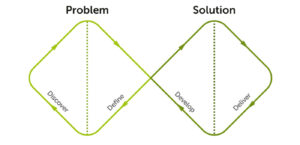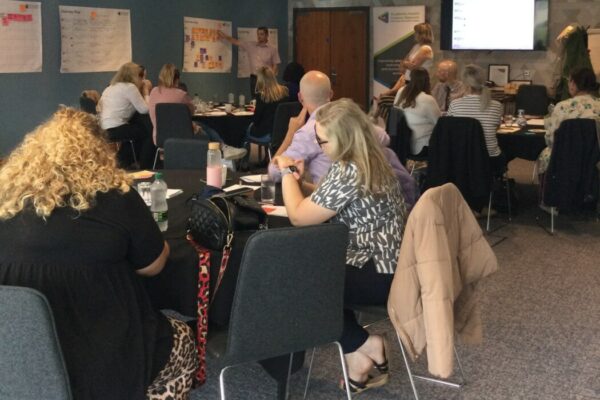Innovation Design Service
The Innovation Design Service (IDS) delivered by Health Innovation NENC supports clinical teams, businesses and operational teams to rapidly discover innovative solutions to complex issues for the benefit of patients, clinicians and the wider ecosystem.
IDS adopts design thinking methodology, bringing together stakeholders for a facilitated session, or series of sessions, to fully understand and appreciate the problem at hand, before working together to design a range of solutions and using testing and feedback to narrow these down.
Delivered by HI NENC, IDS’ unique position within the health and life sciences ecosystem allows it to accelerate innovative solutions through the HI NENC Innovation Pathway, bringing in expertise and working with partners from across system. Furthermore, IDS is supported by HI NENC’s track record of supporting the regional and nation adoption and spread of innovation in the NHS and wealth of experience in delivering quality improvement projects.
The IDS Process
The IDS has been designed to accommodate the challenges faced within health and social care, providing a full service offering which brings together designed-based thinking, service redesign and quality improvement to deliver on projects.
Each IDS project is tailored to address the problem presented, with collaborative rapid discovery sessions and tailored follow up and next steps to improve outcomes.
IDS adopts The Design Council’s double diamond process to explore the problem, understanding this fully before defining the challenge faced and then opening up thinking again to explore potential solutions creatively and collaboratively, before defining the best one/s to take forward.

As an integral part of the HI NENC Innovation Pathway process, IDS is able to bring in experts and provide advice and guidance to support rapid innovation in health and care.
Design Sprints
Design sprints are intensive sessions which traditionally take place over five days. User centric teams come together to rapidly working through five defined stages:

The pressures and challenges faced by those working within the health and social care system mean that taking a full five days out is impossible, however taking advantage of this methodology could lead to the generation of innovative ideas, quicker decision making, more collaborative working and group buy in for solutions.
You can find out more about the IDS in practice through our case studies below.
To find out more or to access the Innovation Design Service please contact Sarah Rendall, Digital Transformation Programme Manager.

